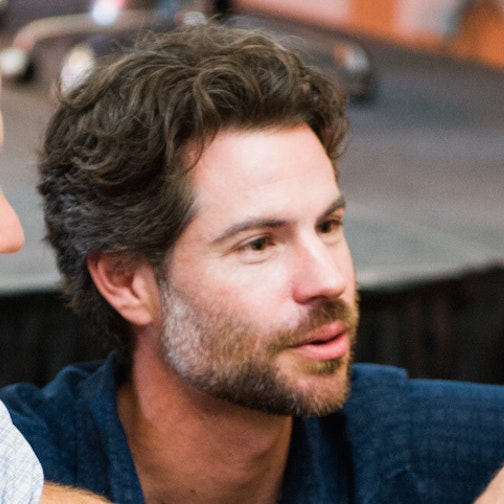The Great Green Meltdown
How Economic Arguments Against Nuclear Highlight Environmentalist Delusions
-
-
Share
-
Share via Twitter -
Share via Facebook -
Share via Email
-
Two weeks ago, four of the world’s most respected climate scientists took the extraordinary step of sending an open letter to their long-time friends and colleagues in the environmental movement, urging them to reverse their longstanding opposition to nuclear power. The scientists told AP and CNN they felt the need to make public their displeasure after years of trying and failing to reason privately with green leaders, who believe solar, wind, and efficiency are enough to power the planet.
The letter came at a time when mainstream environmental groups like Natural Resource Defense Council (NRDC) and Center for American Progress (CAP) were at pains to differentiate themselves from shrill antinuclear activists, like Helen Caldicott and Greenpeace. In a debate over Pandora’s Promise, moderated by the New York Times’s Andrew Revkin, Bobby Kennedy Jr. chose not to repeat the claim he made a year earlier – that Chernobyl had killed a million people – a testament to the fact that the environmental debate about nuclear energy has fundamentally changed over the last 12 months.
Nuclear energy today is broadly recognized by scientists, scholars, and analysts as an environmentally positive technology with risks, such as they are, overwhelmingly outweighed by its environmental benefits. Such is the consensus on this question that mainstream environmental leaders no longer attempt to contest it.
And so, in response to the letter from climate scientists, and the airing of Pandora’s Promise on CNN, the NRDC and CAP led a chorus of green spokespersons claiming that their opposition to nuclear was based not on environmental but rather economic grounds.
“What’s weird is that the environmental movement is being held up as an obstacle,” green jobs advocate Van Jones told Wolf Blitzer. “Don’t blame us! Nuclear power is incredibly expensive.” NRDC's Dale Bryk told a CNN audience that the reason the United States wasn't building nuclear was because "the market is not choosing nuclear." Her colleagues, Ralph Cavanagh and Tom Cochran wrote at CNN.com, “No American utility today would consider building a new nuclear power plant without massive government support.”
But rather than obscure the dogmatism that underlies green opposition to nuclear energy, the economic arguments further revealed it. Having demanded policies to make energy more expensive, whether cap and trade or carbon taxes, greens now complain that nuclear energy is too expensive. Having spent decades advocating heavy subsidies for renewable energy, greens claim that we should turn away from nuclear energy because it requires subsidies. And having spent the last decade describing global warming as the greatest market failure in human history, greens tell us that, in fact, we should trust the market to decide what kind of energy system we should have.
It was hard, at times, to tell whether the claims made about renewables in particular were purely cynical or just delusional. The Sierra Club's Brune claimed that declining US emissions over the last five years had been achieved thanks to wind and solar, a claim that has no plausible basis in fact. US emissions are down thanks to cheap gas, not renewables. Indeed, since the last US nuclear plant came on line in 1997, nuclear has avoided more emissions through simply increasing energy generation from existing nuclear plants than have been avoided by wind and solar power combined.
Brune, Bryk, and Jones all claimed that we don’t need nuclear because renewables are cheaper and solar costs have come down dramatically in recent years. But solar still reliably costs twice as much as nuclear according to the US Energy Information Agency, without accounting for the huge indirect costs rooftop solar shifts onto other ratepayers. A recent California PUC study estimated that by 2020, California's solar energy initiative would increase rates by a billion dollars annually for California energy consumers.
If green claims about renewables were pure sophistry, the claims about energy efficiency were simply out of touch. NRDC’s Bryk cheerily asserted that energy efficiency could obviate the need for vastly more energy consumption globally. But the reality is that more than a billion people around the world today lack access to modern energy at all. Billions more consume just a fraction of what developed world environmentalists consider their birthright, while smugly touting the benefits of conservation and efficiency. And the billion people who still depend upon wood and dung for energy have no electricity or gasoline to conserve.
Even with redoubled efforts to reduce wasted energy in developed countries, the world is going to consume vastly more energy in the coming decades than it does today. This is the basic math of the global climate and energy situation, and is the reason that James Hansen and his colleagues, who have long been closely aligned with the environmental movement, felt the need to call out their erstwhile allies for practicing their own peculiar brand of climate denial.
For four decades, green ideology has talked clean energy but given us dirty coal. It is a posture that could perhaps have been excused in the 1970s, before anyone had really heard of global warming, and before the challenges of scaling renewables had become glaringly obvious. But today, that posture is inexcusable for anyone who is seriously concerned about climate change.
When asked whether the growing number of people, including top climate scientists, coming out for nuclear, had caused NRDC to rethink its position, Ralph Cavanagh told CNN, “I've been in the NRDC since 1979. I have a pretty good idea of where the mainstream environmental groups are and have been. I have seen no movement.” He might be right. But if he is, then green groups have lost whatever credibility they once had to speak for the climate.




